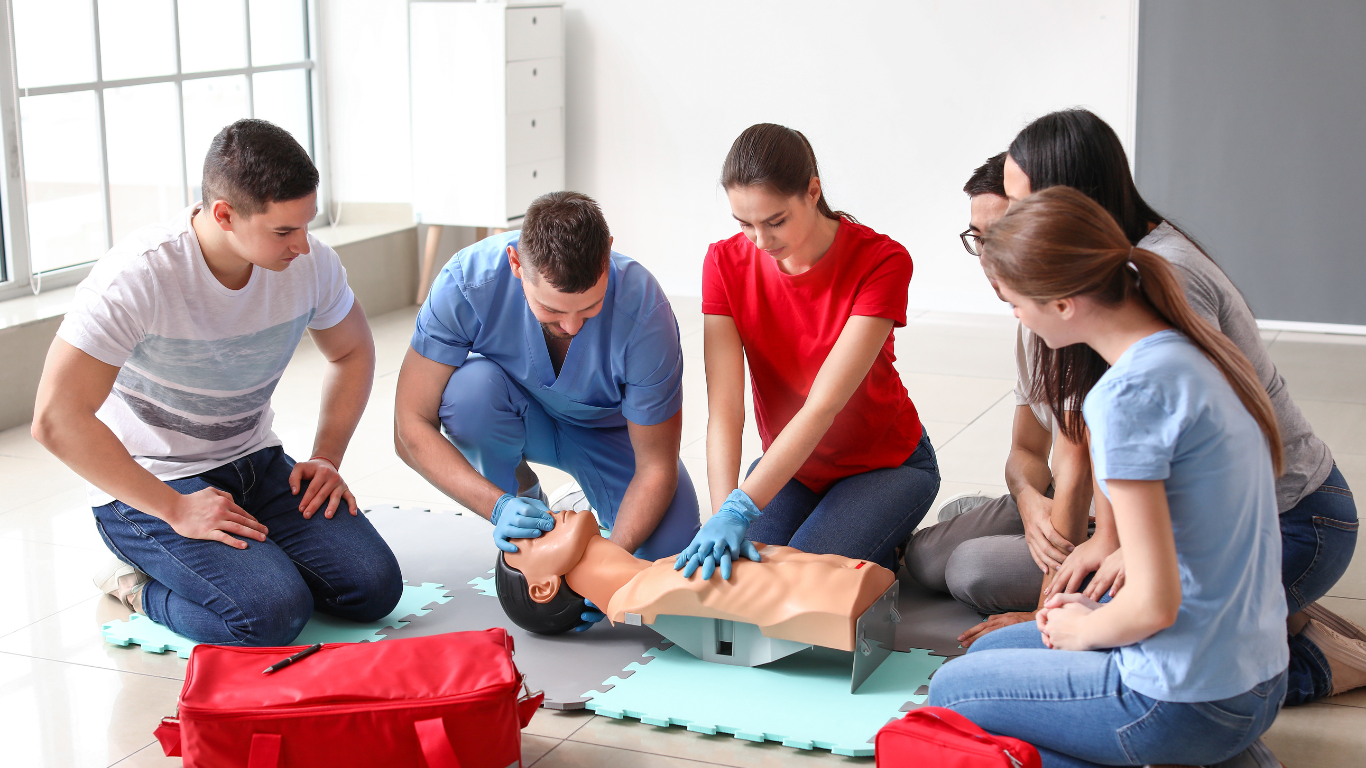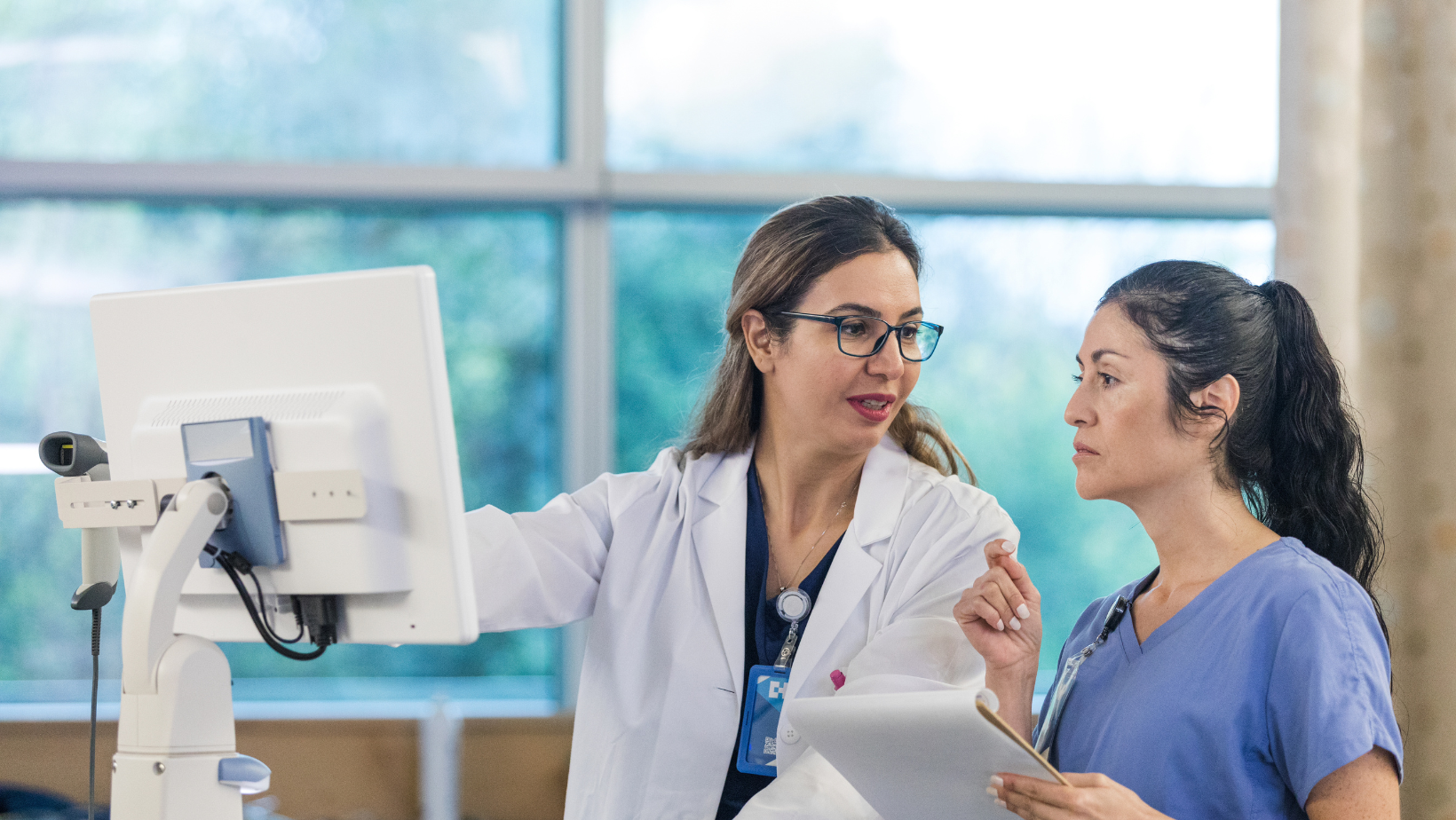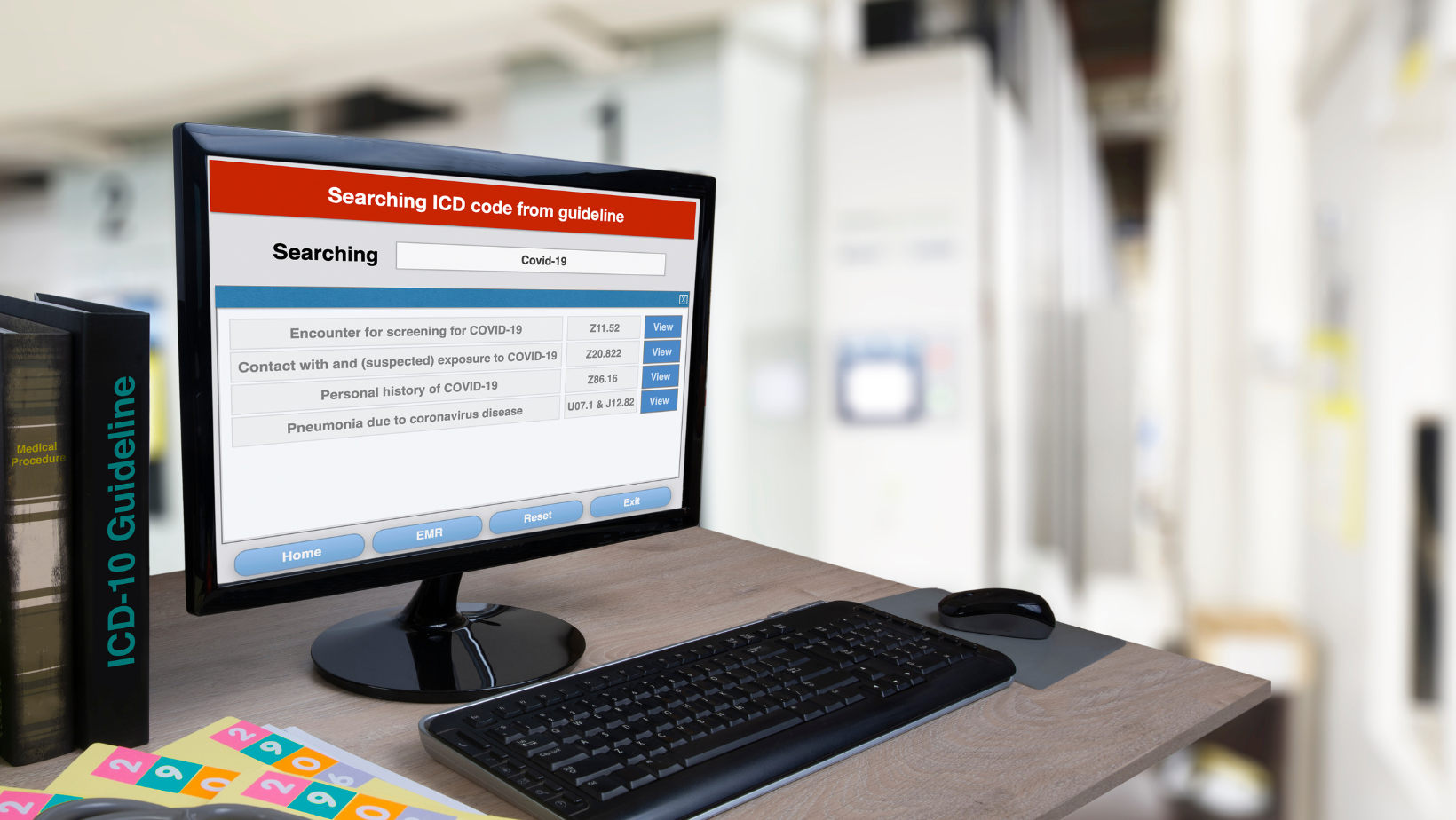Featured Courses

Certified Nursing Assistant (CNA): NYSED Certification
Weekday, Weeknight and Weekend schedules available
Usually
Weekday Schedules:
Monday, Tuesday, Wednesday and Thursday 9:00AM - 1:00PM
Weeknight Schedules:
Tuesday, Wednesday, Thursday
6:00 PM - 10:00 PM
Weekend
Fridays 6pm - 10pm and and Sat/Sun 10am - 2pm
See schedule below for specific days and time
The increase in longevity and the recent changes in the health care system have created an increased need for educated and skilled Nursing Assistants. This program gives students an excellent opportunity to acquire the necessary occupational skills required for C.N.A.s. The CNA profession is ideal for people seeking flexible hours working in nursing homes, hospitals, doctors' offices and health care facilities. The program includes anatomy and physiology, fundamentals of patient care and clinical experience in a residential health care facility. Screen reader support enabled.
Pre-/Co-requisites:
Basic Cardiac Life Support (AHX-100), also known as CPR
(8-hour American Heart Association for health care provider and professional rescuer, which includes adult, child, infant CPR, rescue breathing, and use of AED (Automatic External Defibrillator) course)
High School Diploma or GED/HSE
US Citizenship or Legal Working Permits(Social Security Number).
The NYS Department of Health now requires that Certified Nursing Assistant (CNA) candidates take an additional online training program: the Affirming Care for Older LGBTQIA+ Individuals Training.
This program is available through NYS's Department of Health's Learning Management System. After registering, students can locate the program by conducting a catalog search and typing "Affirming" in the search function. When the course is completed, the registered user will receive a confirmation certificate that should be emailed to the instructor. To locate your certificate log in to your account, got to my courses and look for a drop down menu on the right side of the page and select completed course to see and download your certificate.
This course must be completed prior to the CNA final with no exceptions.
The following is required prior to the start date of clinical externship:
- Copy of physical examination (within the last 6 months);
- Updated immunization data: PPD, MMR, Tdap;
- COVID card (2-3 vaccinations);
- Flu vaccine (current);
- Titer vaccinations: Varicella, HepB; and
- CPR Certification Card
These documents must be presented to the instructor at the time of in-person skills labs on campus, and then again on the start date of the externship.
**Employment opportunities with New York City HealthPlus Hospitals**

EMT Certification
Requirement:
- High School Diploma or GED/HSE
- US Citizenship or Legal Working Permits
This course covers all techniques and operational aspects of an EMT. Demonstration, practice, and clinical observation are integrated with free online FEMA classes.
Certifications provided by NYS Bureau of EMS. Students will be required to pay a separate registration fee on FISDAP on line EMS scheduler to arrange clinical rotations.
Please refer to NYS DOH bureau of EMS website for requirements for certification,
https://www.health.ny.gov/professionals/ems/
Participants must be fully vaccinated.
Registration will end 2 weeks before the class is scheduled to start

Certified Medical Billing and Coding Specialist Program
This program consists of the following six courses:
First Semester:
Medical Terminology & Body Systems --MBX126- $600-- which is the language used in medical professions;
Electronic Health Records -- MBX-005- $600, which covers regulations that govern the practice of medicine;
Computer Readiness -- MBX-003 --$540 which covers the Microsoft Office Suite of Word, Power Point and Excel.
Those with computer proficiency may opt to take Leveraging AI and Machine Learning in Healthcare $540 in place of Computer Readiness
Second Semester:
CPT Coding (Current Procedural Terminology) -- MBX-103 - $600
ICD-10 Coding - International Classification of Diseases -- MBX-104- $600
Medical Billing & Practice Management -- MBX-125- $600, which includes insurance industry terminology and the knowledge of how to correctly code and bill for services rendered using practice management software. The focus of this medical career pathway is the financial health of enterprise or revenue cycle management.
Total: $3,540



Health & Allied Services Courses

Certified Clinical Medical Assistant Program (CCMA)
This 7 course program starting with Medical Terminology & Body Systems (MBX126), which is the language used in the medical professions, and navigating of an Electronic Health Record (MBX-005). Computer Readiness (MBX003) teaches Microsoft Word, Excel and Powerpoint for office work or Those with computer proficiency may opt to take Leveraging AI and Machine Learning in Healthcare in place of Computer Readiness. The course is work is rounded out with EKG (AHX170), Phlebotomy (AHX171) and Medical Assisting Administrative Procedures (MBX127).
The recommended concurrent schedule of courses is listed below.
First Semester:
- Medical Terminology & Body Systems (MBX126) $600
- Electronic Health Record (MBX005) $600
- CPR (AHX100) $175 (Must be AHA CPR certification) (8-hour American Heart Association for health care provider and professional rescuer, which includes adult, child, infant CPR, rescue breathing, and use of AED (Automatic External Defibrillator) course)
- Computer Readiness (MBX003) $540
- ???????Those with computer proficiency may opt to take Leveraging AI and Machine Learning in Healthcare $540 in place of Computer Readiness
Second Semester:
- EKG $1,150
- Phlebotomy $1,375
- Medical Assisting Administrative Procedures for CCMAs (MBX127) $825
Total: $5,265
You can register for these classes as you go or call the office at 718-631-6343 to enroll in the program!

Certified Hemodialysis Technician Prep Course
Designed to prepare for employment in the Hemodialysis industry as Certified Hemodialysis Technician (CHT).
Please call our office (718-631-6343) for comprehensive program details.
Certified Hemodialysis Technician (CHT) Responsible for providing direct patient care, monitoring the patient and hemodialysis machine, and performing safety checks on the equipment and systems.
Hemodialysis cleans the blood of waste products and excess fluids by passing the blood through an artificial kidney, or dialyzer, for patients with end-stage renal disease. Topics per Certification Type: Principles of Hemodialysis, Renal Anatomy and Physiology, Complications of Renal Failure, Renal Nutrition, Lab Work, Vascular Access Care, Infection Control Practices, Water Treatment, Dialyzer Reprocessing, Hemodialysis-Fresenius-Machine setup, Operation, Disinfection, Management of Alarms, Electronics, Medical Emergencies, Patient Confidentiality, BCLS/CPR, Patient as The Customer, Fire and OSHA Safety, Ergonomics of Lifting, Professional Development, Working As a Team, Administration of Hemodialysis Medications, Anemia Management, Mineral Bone Management and Organ Transplantation.
Prerequisite: 18 years of age or older, High School diploma (or equivalent) or official transcript.
AHX-100 Basic Cardiac Life Support (CPR)
(Must be AHA CPR certification)
(8-hour American Heart Association for health care provider and professional rescuer, which includes adult, child, infant CPR, rescue breathing, and use of AED (Automatic External Defibrillator) course)
*or valid AHA certification in this courses.
Required Textbook: Core Curriculum for the Dialysis Technician: A Comprehensive Review of Hemodialysis, 6th Edition, Medical Education Institute, Inc.
For more information contact: RShannon@qcc.cuny.edu

Certified Medical Administrative Assistant (CMAA)
Certified Medical Administrative Assistants play important roles in today's medical community and are in great demand. The CMAA program at QCC consists of four courses:
Medical Terminology & Body Systems (MBX126) $600
Electronic Health Records (MBX-005) $600
Medical Assisting Administrative Procedures (MBX127) $825
Computer Readiness (MBX003) .$540
- Those with computer proficiency may opt to take Leveraging AI and Machine Learning in Healthcare $540 in place of Computer Readiness
Total: $2,565
Call 718-631-6343 if you have questions!

Certified Medical Billing and Coding Specialist Program
This program consists of the following six courses:
First Semester:
Medical Terminology & Body Systems --MBX126- $600-- which is the language used in medical professions;
Electronic Health Records -- MBX-005- $600, which covers regulations that govern the practice of medicine;
Computer Readiness -- MBX-003 --$540 which covers the Microsoft Office Suite of Word, Power Point and Excel.
Those with computer proficiency may opt to take Leveraging AI and Machine Learning in Healthcare $540 in place of Computer Readiness
Second Semester:
CPT Coding (Current Procedural Terminology) -- MBX-103 - $600
ICD-10 Coding - International Classification of Diseases -- MBX-104- $600
Medical Billing & Practice Management -- MBX-125- $600, which includes insurance industry terminology and the knowledge of how to correctly code and bill for services rendered using practice management software. The focus of this medical career pathway is the financial health of enterprise or revenue cycle management.
Total: $3,540

Certified Nursing Assistant (CNA): NYSED Certification
Weekday, Weeknight and Weekend schedules available
Usually
Weekday Schedules:
Monday, Tuesday, Wednesday and Thursday 9:00AM - 1:00PM
Weeknight Schedules:
Tuesday, Wednesday, Thursday
6:00 PM - 10:00 PM
Weekend
Fridays 6pm - 10pm and and Sat/Sun 10am - 2pm
See schedule below for specific days and time
The increase in longevity and the recent changes in the health care system have created an increased need for educated and skilled Nursing Assistants. This program gives students an excellent opportunity to acquire the necessary occupational skills required for C.N.A.s. The CNA profession is ideal for people seeking flexible hours working in nursing homes, hospitals, doctors' offices and health care facilities. The program includes anatomy and physiology, fundamentals of patient care and clinical experience in a residential health care facility. Screen reader support enabled.
Pre-/Co-requisites:
Basic Cardiac Life Support (AHX-100), also known as CPR
(8-hour American Heart Association for health care provider and professional rescuer, which includes adult, child, infant CPR, rescue breathing, and use of AED (Automatic External Defibrillator) course)
High School Diploma or GED/HSE
US Citizenship or Legal Working Permits(Social Security Number).
The NYS Department of Health now requires that Certified Nursing Assistant (CNA) candidates take an additional online training program: the Affirming Care for Older LGBTQIA+ Individuals Training.
This program is available through NYS's Department of Health's Learning Management System. After registering, students can locate the program by conducting a catalog search and typing "Affirming" in the search function. When the course is completed, the registered user will receive a confirmation certificate that should be emailed to the instructor. To locate your certificate log in to your account, got to my courses and look for a drop down menu on the right side of the page and select completed course to see and download your certificate.
This course must be completed prior to the CNA final with no exceptions.
The following is required prior to the start date of clinical externship:
- Copy of physical examination (within the last 6 months);
- Updated immunization data: PPD, MMR, Tdap;
- COVID card (2-3 vaccinations);
- Flu vaccine (current);
- Titer vaccinations: Varicella, HepB; and
- CPR Certification Card
These documents must be presented to the instructor at the time of in-person skills labs on campus, and then again on the start date of the externship.
**Employment opportunities with New York City HealthPlus Hospitals**

Dental Assistant
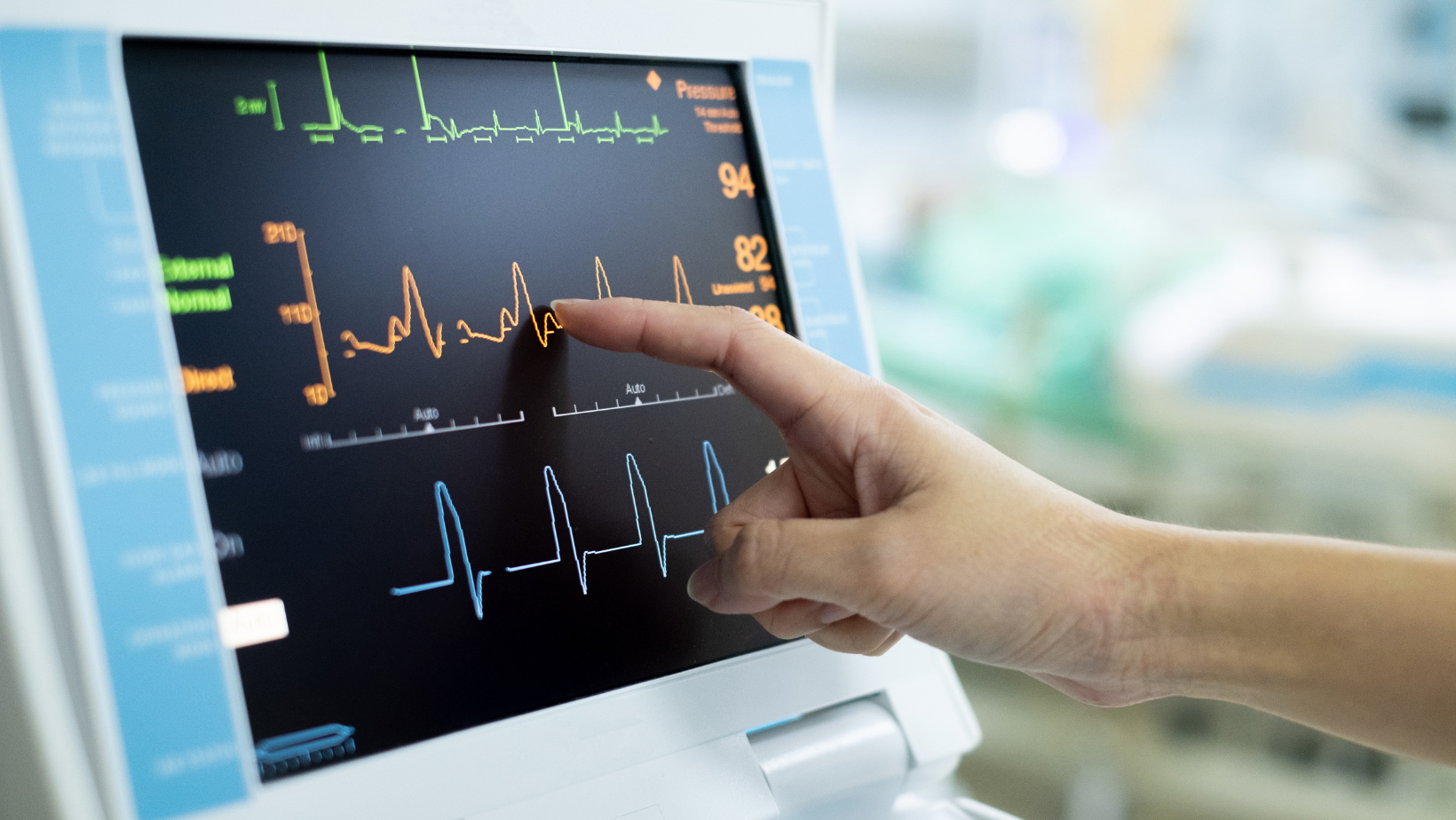
EKG Technician
Pre-/Co-Requisite:
AHX-100 Basic Cardiac Life Support (CPR)(Must be AHA CPR certification)
(8-hour American Heart Association for health care provider and professional rescuer, which includes adult, child, infant CPR, rescue breathing, and use of AED (Automatic External Defibrillator) course)
*or valid AHA certification in this courses.
Introduction to cardiac anatomy and terminology, recognition of cardiac emergencies, obtaining 12-lead ECG or EKG tracing and basic rhythm interpretation.
EKG technicians are in demand! EKG technicians work in physician's offices, hospitals, clinics, and other healthcare facilities and organizations. EKG technicians also work for insurance companies to provide data for health and life insurance policies. Similar to other growing healthcare professions, the demand for EKG technicians is expected to continue to grow substantially.
This program covers topics and processes critical to conducting and interpreting electrocardiograms (EKGs). To begin, learners will review the anatomy and physiology of the heart. From there, learners will go on to explore the technology used such as the EKG machine. Next, participants will learn how to interpret a rhythm strip. And finally, learners will discover the details of a myocardial infarction. Successful completion of this program will help prepare learners to perform the role of EKG technician.
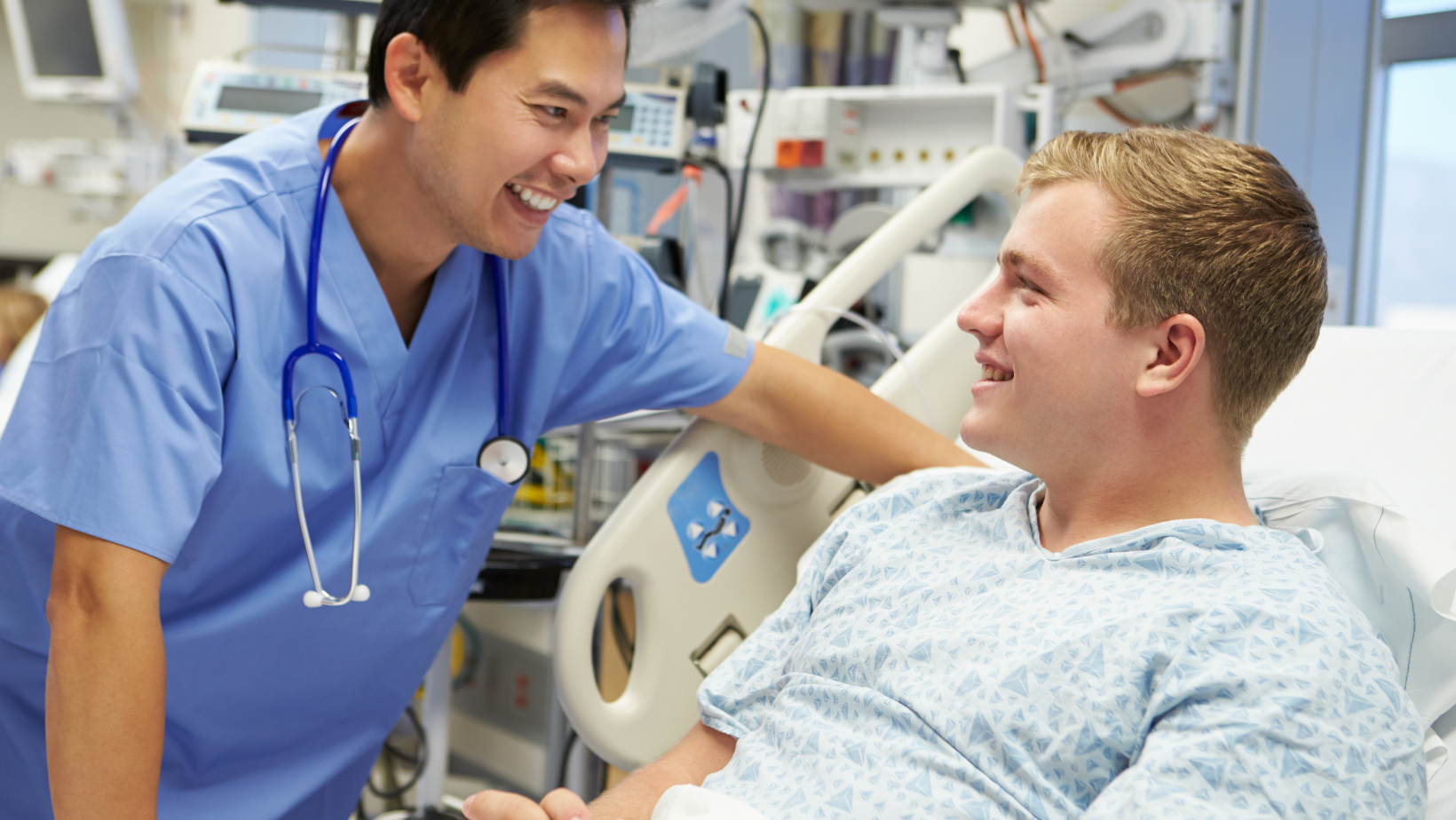
Emergency Room Technician Program(ERT)
An ER Tech provides technical support to MDs and RNs to optimize patient care. The ER Tech assists the MDs and RNs by performing Phlebotomy and IV stats, performing 12-lead EKGs, transporting patients to other departments, performs wound care, obtains lab specimens, documents all care/procedures provided, and performs other responsibilities as assigned.
Requirements: Registrants must have American Heart Association CPR certification current before beginning program and upon completion of program. Students will be required to meet with Program Coordinator once per semester to asses progress towards completion of program and HS Diploma or equivalent required.
To earn the certificate, the following courses must be successfully completed:
First Semester:
- AHA/BLS (Basic Cardiac Life Support (AHX100) $175--(Must be AHA CPR certification) (8-hour American Heart Association for health care provider and professional rescuer, which includes adult, child, infant CPR, rescue breathing, and use of AED (Automatic External Defibrillator) course)
- Medical Terminology & Body Systems(MBX 126) $600
- EKG Tech (AHX170) $1,150
- Phlebotomy Tech (AHX171) $1,375
- IV Tech (AHX172) $570
Second Semester:
Total: $5,570
You can register for these classes as you go or call the office at 718-631-6343 to enroll in the program!

EMT Certification
Requirement:
- High School Diploma or GED/HSE
- US Citizenship or Legal Working Permits
This course covers all techniques and operational aspects of an EMT. Demonstration, practice, and clinical observation are integrated with free online FEMA classes.
Certifications provided by NYS Bureau of EMS. Students will be required to pay a separate registration fee on FISDAP on line EMS scheduler to arrange clinical rotations.
Please refer to NYS DOH bureau of EMS website for requirements for certification,
https://www.health.ny.gov/professionals/ems/
Participants must be fully vaccinated.
Registration will end 2 weeks before the class is scheduled to start
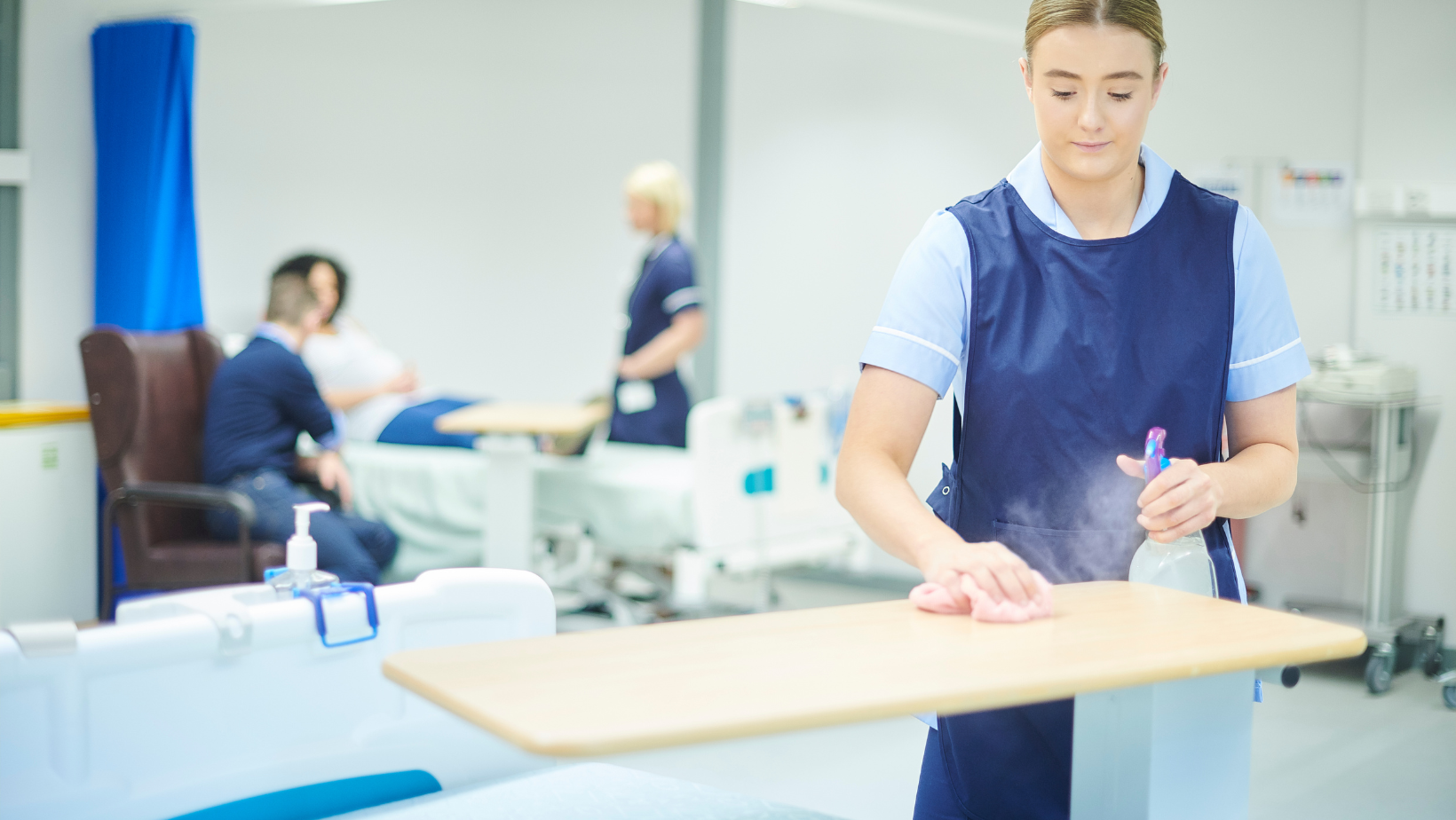
Infection Control Techniques
Licensing Certification
Required In health-care practice for RN's, LPN's, MD's and PA's
NYS-mandated training for renewing health-care licenses. Approved by the NYS Department of Education, this course covers Department of Health policy on H.I.V. and Hepatitis B. and Board of Regents and Dept. of Health regulations on professional conduct.
Register at https://www.ed2go.com/qccce/online-courses/infection-control-training/
For help: https://www.ed2go.com/qccce/help.html
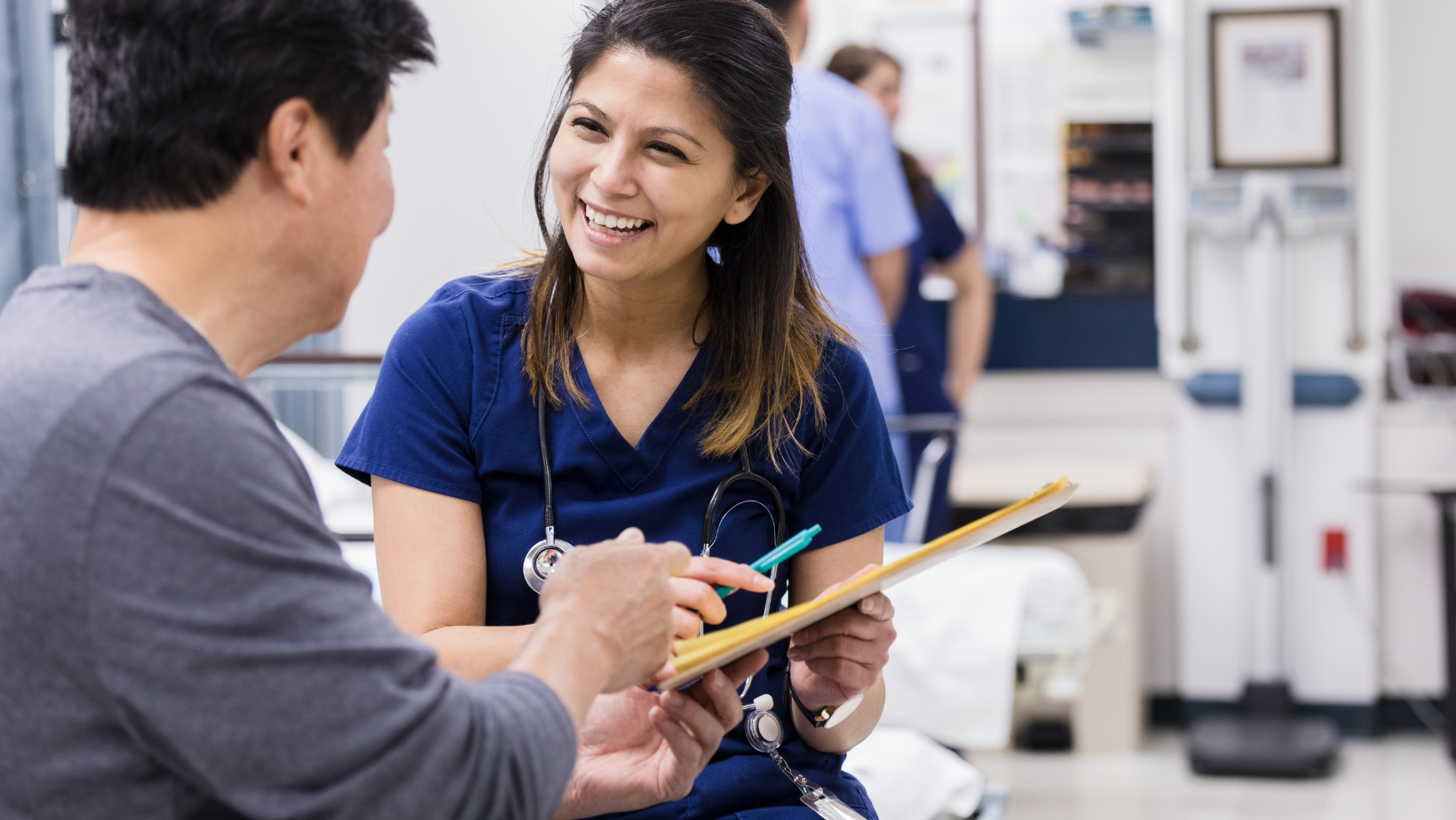
Patient Care Associate Program(PCA)
Patient Care Associates (previously known as Patient Care Technicians) are multi-disciplinary technical workers trained to provide basic nursing assistant care as well as other skilled functions. Hospitals, Nursing Homes, Clinics, Labs and doctors' Offices all employ Patient Care Technicians.
The disciplines included in the program at Queensborough Community College include Five core competencies:
- CPR- Basic Cardiac Life Support(AHX100) $175--(Must be AHA CPR certification) (8-hour American Heart Association for health care provider and professional rescuer, which includes adult, child, infant CPR, rescue breathing, and use of AED (Automatic External Defibrillator) course)
- Medical Terminology & Body Systems (MBX 126) $600 (Pre-requisite for EKG and Phlebotomy)
- EKG Technician(AHX170) $1,150
- Phlebotomy Technician(AHX171) $1,375
- Certified Nursing Assistant (NUX200) $1,650
Total: $4,950
Certified Nursing Assistant can not be taken in the same semester as EKG and Phlebotomy.
After completing the program students can take the certification exam from the NHA and become a Certified Patient Care Associate (CPCA).
You can register for these classes as you go or call the office at 718-631-6343 to enroll in the Program!

Pharmacy Technician
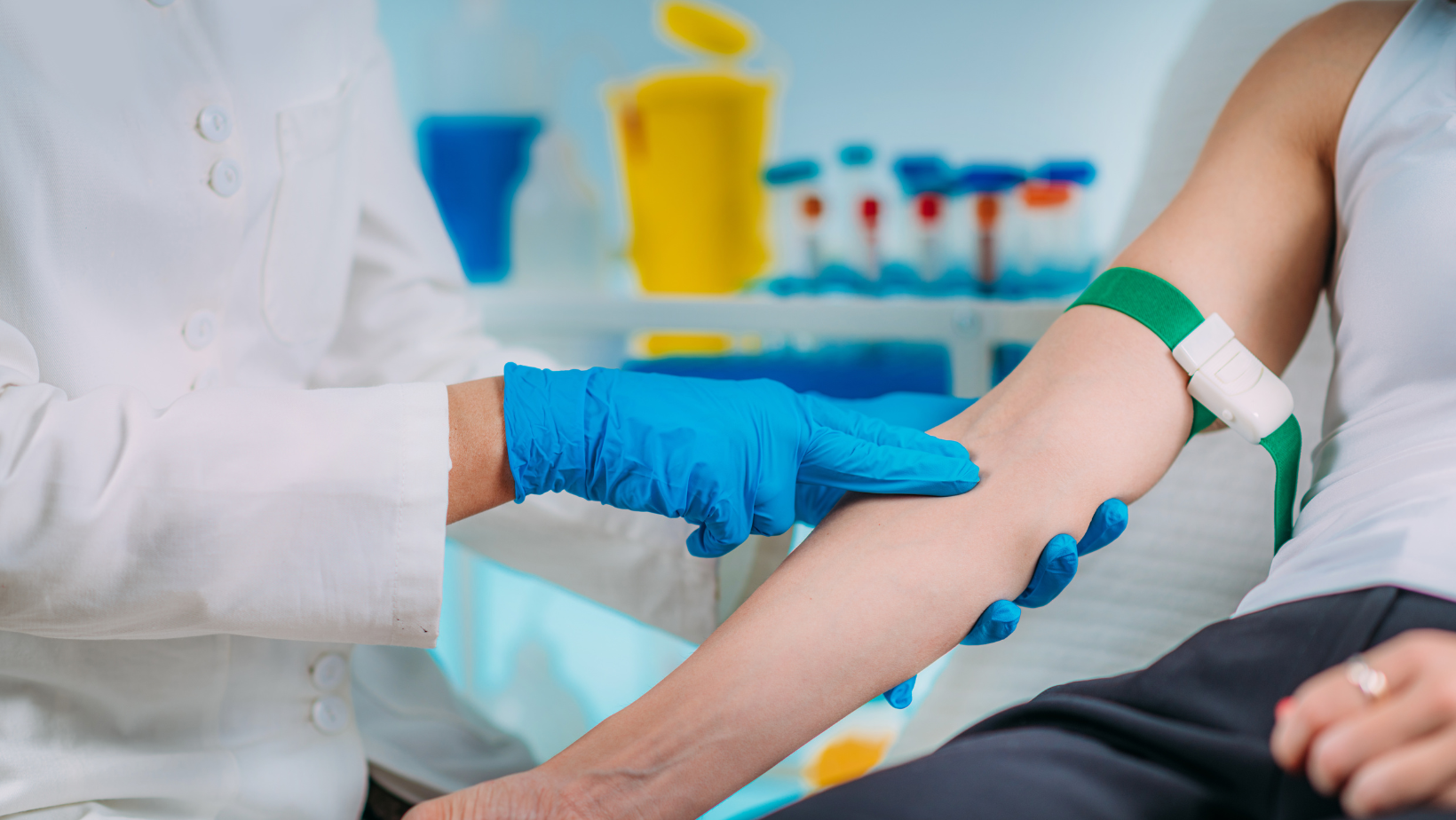
Phlebotomy Technician
Pre-/Co-Requisites
AHX-100 Basic Cardiac Life Support (CPR)(Must be AHA CPR certification)
(8-hour American Heart Association for health care provider and professional rescuer, which includes adult, child, infant CPR, rescue breathing, and use of AED (Automatic External Defibrillator) course)
or valid AHA certification in this course.
Obtain the introductory skills to secure an entry-level position. Learn various methods of blood collection through venipuncture, capillary puncture and, existing intravascular devices. Emphasizes use of anticoagulants, the order of draw and, procedures for obtaining and processing specimens. Safety considerations for all health care professionals and patients discussed. Registrants should purchase stethoscope, B/P cuff and non-latex gloves.
The phlebotomist is a vital member of the clinical laboratory team, whose main function is to obtain patient's blood specimens by venipuncture and micro-collection for testing purposes. Phlebotomists are employed throughout the healthcare system including in hospitals, neighborhood health centers, medical group practices, HMO's, public health facilities, veteran hospitals, insurance carriers, and in other healthcare settings. The demand for phlebotomy technicians has increased substantially with the overall complexity of healthcare services and the risks of infectious disease. Current healthcare industry experts predict a 15% increase in phlebotomy jobs by 2024.
This program prepares learners to collect blood specimens from clients for the purpose of laboratory analysis. Learners will become familiar with all aspects of blood collection and will review the skills needed to perform venipunctures safely. Topics in this course include medical terminology, related anatomy and physiology, blood collection procedures, and procedures for collection of other types of specimens within the scope of practice of the phlebotomist.
Textbook-
Hartman's Complete Guide for the Phlebotomy Technician, 2e
ISBN 978-1604251654
Workbook-
Workbook for Hartman's Complete Guide for the Phlebotomy Technician 2e
ISBN 978- 1604251661
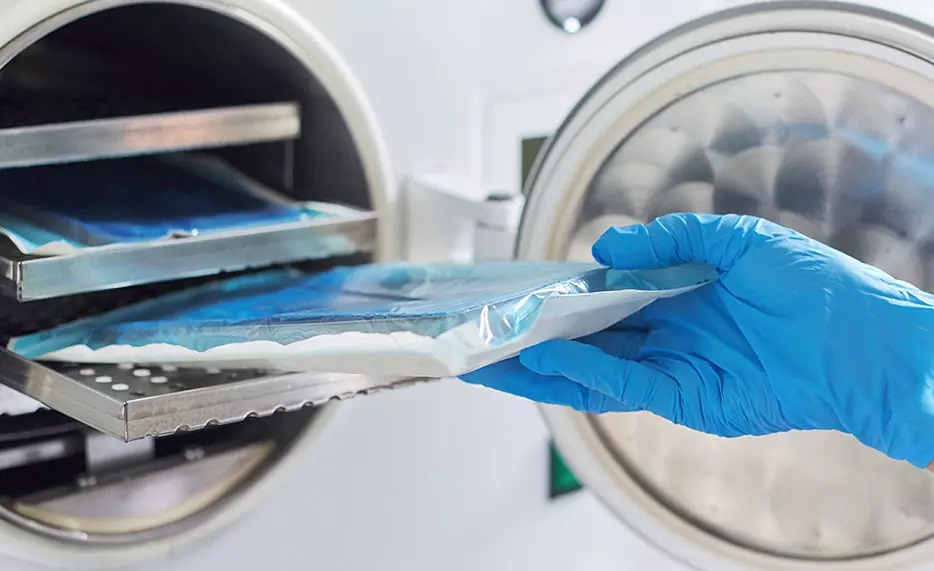
Sterile Processing Technician
Sterile Processing Technician (Voucher Included)
Prepare for a career as a Sterile Processing Technician (SPT). This immersive course will train you to work as an SPT and prepare you for the Certified Registered Central Service Technician (CRCST) certification from the HSPA.
Register through ED2GO:
sterile-processing-technician-voucher-included
Overview
Sterile Processing Technicians (SPT), also known as Central Service Technicians, play a critical role in preventing infection by sterilizing, cleaning, processing, assembling, storing, and distributing medical supplies. This online sterile processing technician certification course will train you to work as an SPT and prepares you for the Certified Registered Central Service Technician (CRCST) certification offered by the Healthcare Sterile Processing Association (HSPA). This course also includes a voucher which is prepaid access to sit for the certification exam upon eligibility.
With the support of an instructor, you will learn all the necessary steps required to perform the duties and tasks of an SPT. In this sterile processing technician training course, you will learn the details and expectations within the concepts of the role and gain proficiency in understanding the step-by-step requirements of the sterilization process.
The course also includes an opportunity to participate in an clinical experience.
Disclaimer: To qualify for the clinical experience application process, students must complete the online course successfully and have account balances up to date (at a minimum). Going through the clinical experience application process does not guarantee a placement. However, affiliated partnerships increase the likelihood of finding a site that matches student needs. COVID may be affecting the capacity of availability in your area.

Sterile Processing Technician hybrid
Register at: https://qcccuny.edu2.com/product/5120/sterile-processing-technician
Program Description
Clinical Practice2-4Months
Sterile Processing Technicians usually work in hospitals, day surgery clinics and other health care settings. Under direct supervision, the surgical technicians are members of the operating room team that most commonly includes surgeons, anesthesiologists, and circulating nurses. Before an operation, surgical technicians help prepare the operating room by setting up surgical instruments and equipment, sterile drapes, and sterile solutions. They assemble both sterile and non-sterile equipment, as well as adjust and check to ensure all equipment is working properly.
This course will cover the surgical technician's role beginning from pre-op preparation, during the operative procedure and finish with post-operative room break down.
Program Objectives
After completing this program, learners will be able to:
- Discuss the legal and ethical issues of surgical technology
- Understand the scope of practice, risk management and liability issues
- Knowledge and practice of the asepsis and sterile technique
- Practice of safe patient care and safe surgical practices
- Discuss blood-borne pathogens related to the surgical environment
- Recognize specific drug classifications and their characteristics
- Discuss the various types of suture and each application
- Recognize basic surgical instruments and discuss their application
- Describe preoperative routines
- Discuss and demonstrate the principle of surgical positioning and draping
- Demonstrate appropriate technique for gowning and gloving of self and other team members
- Knowledge of instrument set ups required by a variety of surgical procedures
- Identify basic instruments by type, function, and name
- Identify and prepare supplies used in the OR
- Identify the basic organizational structures of the human body and the function of the body systems as they apply to surgery
Once you've completed the program requirements, a dedicated Externship Coordinator will reach out to you to arrange an externship with a local employer or organization in your chosen field. This is a great opportunity to get the hands-on, real-world experience employers are looking for!
Certification Opportunities
After completing this program, learners will have the opportunity to take the leading national/industry-recognized certification exam(s) essential to entry-level employment in this fast-growing field.
Certification Requirements:
Full CRCST Certification
- Provide 400 hours of hands-on experience during the previous five years, preceding the application.
Provisional CRCST Certification
- Provide 400 hours of hands-on experience within six months of passing the certification exam.
GROW YOUR CAREER
-
Scholarship Opportunities
Limited scholarships are available to cover up to 90% of tuition for individuals who do not have access to other sources of funding.
Externship Programs
Continuing Ed programs through Queensborough Community College gives you more potential opportunities for internships.
Flexible Payments
So you can focus on your education and career plans. Contact us and we'll assist you in making the right choice.






